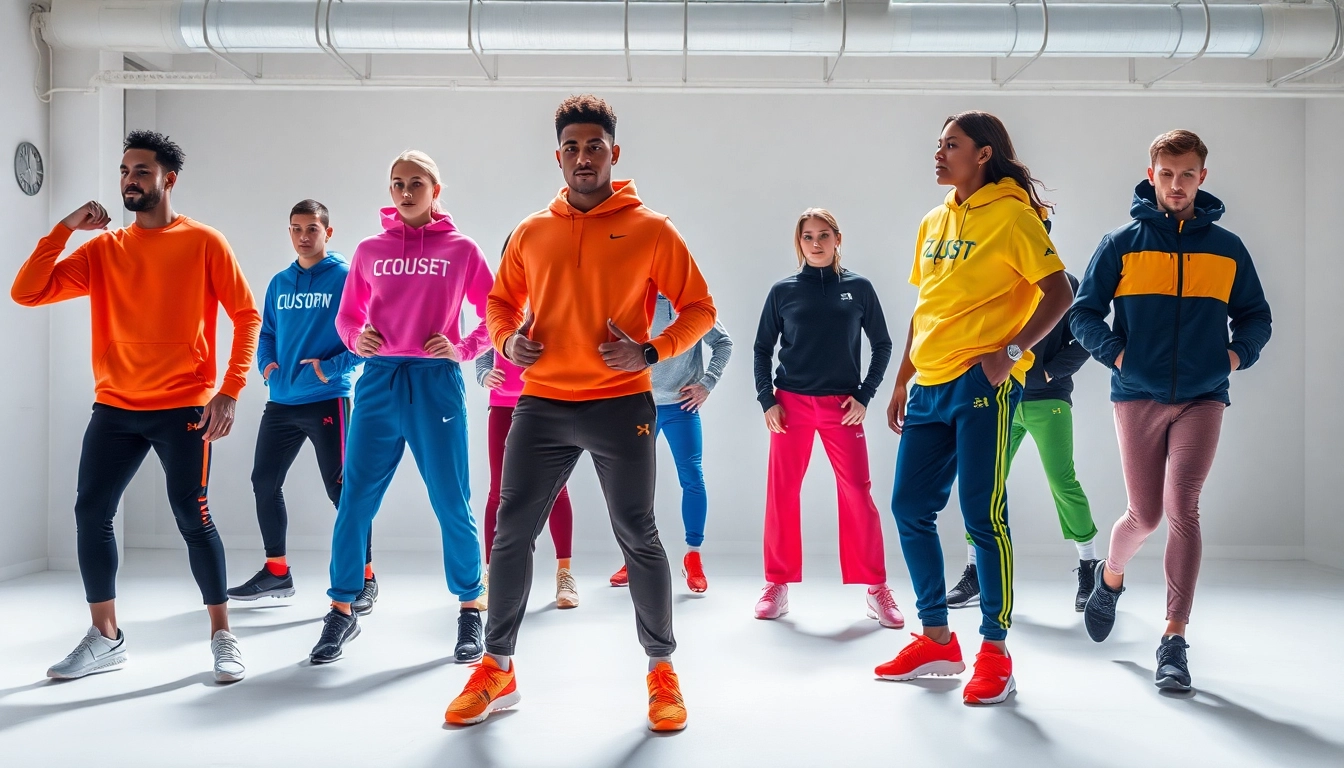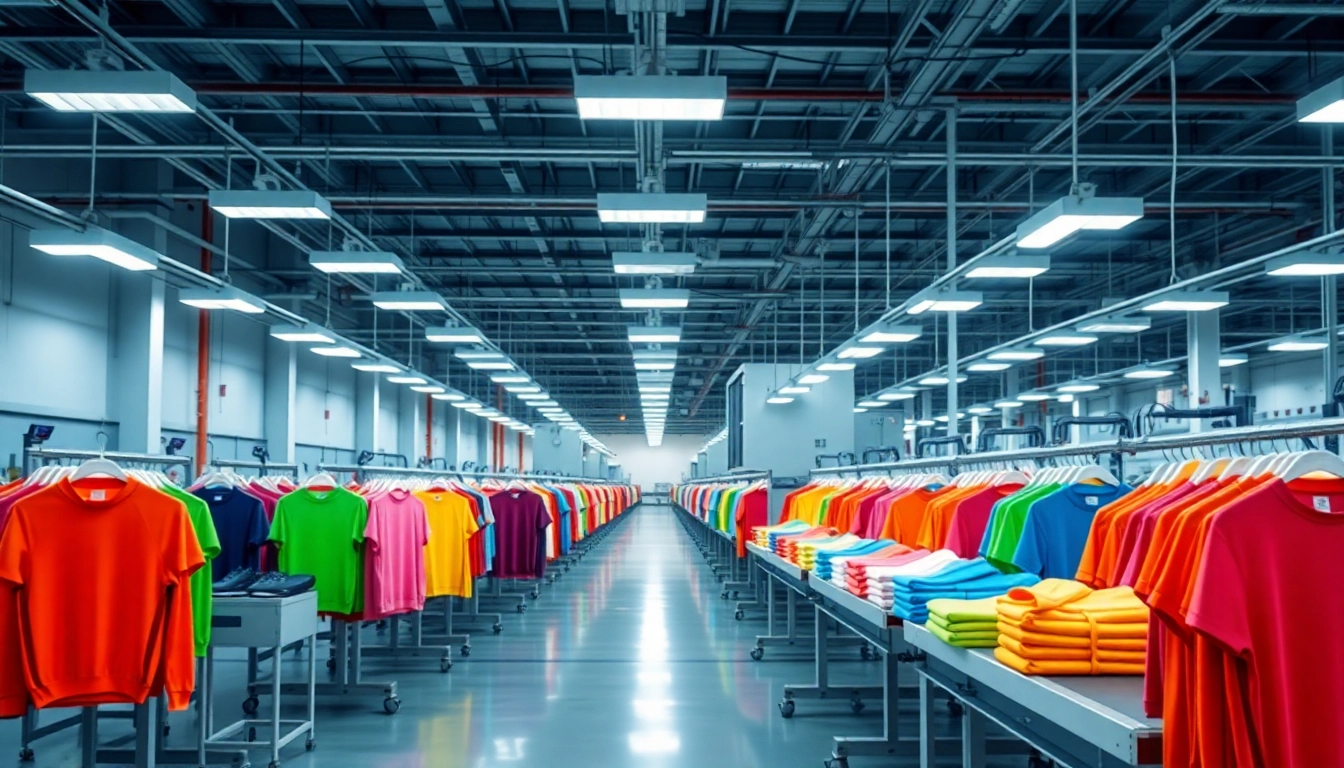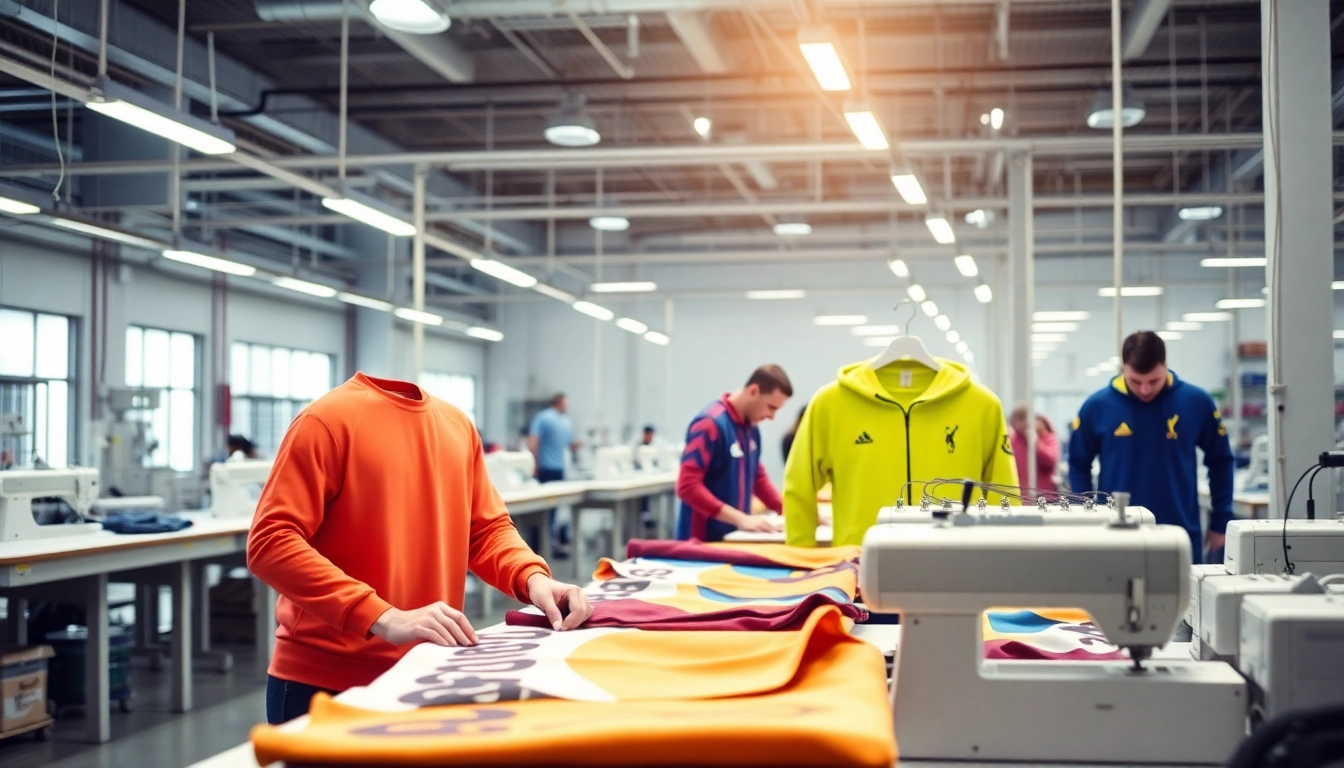Understanding Private Label Sportswear Manufacturing in Pakistan
In the dynamic world of athletic apparel, private label manufacturing has emerged as a strategic avenue for brands aiming to establish a unique presence without the extensive overhead of in-house production. Pakistan, notably known for its robust textile industry, has become a hub for private label custom sportswear manufacturing, offering high-quality craftsmanship and flexible customization options. For entrepreneurs, retailers, and sports organizations looking to launch or expand their lines, partnering with a trusted Private Label Custom Sportswear Manufacturer in Pakistan provides a pathway to deliver premium products under your brand identity efficiently and cost-effectively.
Definition and Benefits of Private Label Sportswear
Private label sportswear refers to the process where clothing manufacturers produce athletic apparel that bears the branding and labels of another company or retailer. This model allows brands to offer customized products without investing in manufacturing facilities, enabling faster market entry and greater flexibility in design and volume.
The benefits are extensive: brands can focus on marketing and distribution, enjoy reduced overhead costs, and benefit from the manufacturing expertise of established factories in Pakistan. Moreover, private labeling ensures exclusivity—your designs and branding are unique, helping build brand loyalty and recognition in a competitive marketplace. This approach is especially advantageous for startups and small to medium enterprises aiming for differentiation and high-quality offerings.
Key Features of Custom Sportswear Production
Custom sportswear production encompasses several technical and creative elements crucial for delivering a product that aligns with your brand ethos and market demands:
- Material Selection: Choosing the right textiles like polyester, spandex, or moisture-wicking fabrics is fundamental for performance and durability.
- Design Flexibility: From color schemes to intricate logos and patterns, customization allows for distinctive branding.
- Production Techniques: Methods such as sublimation, embroidery, heat transfer, and screen printing ensure vibrant, long-lasting designs.
- Quality Control: Rigorous inspections ensure consistency in size, fit, color fastness, and overall finish.
- Packaging and Labeling: Custom packaging enhances brand presentation and customer experience.
Pakistan’s manufacturers excel in integrating these features seamlessly, leveraging decades of expertise in textile manufacturing and innovation in sportswear technology.
Market Overview and Industry Trends in Pakistan
The sportswear manufacturing industry in Pakistan has experienced exponential growth, fueled by globalization, rising sports participation, and international brands outsourcing production to local factories. Sialkot, Lahore, and Karachi are the primary textile and sportswear hubs, offering access to advanced machinery, skilled labor, and competitive pricing.
Current trends indicate a rising preference for sustainable fabrics, eco-friendly production processes, and smart textiles integrated with wearable technology. Additionally, the rise of e-commerce channels and direct-to-consumer business models has increased demand for private label sportswear, allowing brands to maintain tighter control over branding, inventory, and customer engagement.
Overall, Pakistan’s sportswear industry is positioned as a reliable and innovative manufacturing partner, attracting global brands seeking quality and consistency at competitive rates.
Choosing a Reliable Private Label Sportswear Manufacturer in Pakistan
Criteria for Evaluating Manufacturers
Selecting the right partner is critical to ensure quality, reliability, and scalability. Key criteria include:
- Experience and Reputation: Look for manufacturers with a proven track record and positive client testimonials.
- Certifications and Compliance: Ensure adherence to international standards such as ISO, OEKO-TEX, and social compliance certifications.
- Range of Capabilities: Verify if they offer various customization techniques, materials, and product types.
- Communication and Customer Support: Transparent communication channels and dedicated project management are vital for smooth collaboration.
- Production Capacity: Confirm their ability to scale production based on your orders and growth plans.
Engaging with transparent manufacturers like Private Label Custom Sportswear Manufacturer in Pakistan ensures compatibility and long-term partnership success.
Quality Assurance and Material Selection
Quality assurance is the backbone of a reputable manufacturing partner. It involves systematic checks during fabric sourcing, cutting, sewing, and finishing processes. Leading Pakistani manufacturers invest in modern testing labs to verify fabric strength, colorfastness, and stitching integrity.
Material selection should align with product purpose—breathable mesh for sports jerseys, compressive fabrics for athletic tights, or moisture-wicking textiles for training wear. Local manufacturers often maintain close relationships with raw material suppliers, ensuring access to high-grade textiles at competitive prices.
Implementing quality management systems like ISO 9001 further demonstrates commitment to consistent standards, reducing product defects and ensuring customer satisfaction.
Turnaround Times and MOQ Requirements
Efficiency and responsiveness are critical when launching or scaling your sportswear line. Reputable suppliers often provide fast turnaround times—typically ranging from 4 to 8 weeks from order confirmation to delivery—depending on complexity and volume.
Minimum Order Quantities (MOQs) vary by manufacturer but are generally designed to accommodate small startups as well as large brands. Typically, MOQs range from 50 to 500 pieces per style, allowing flexibility without compromising quality or pricing.
Clear communication about lead times and MOQ policies upfront avoids delays and unexpected costs, fostering a smooth manufacturing experience.
Design and Customization Processes for Sportswear
1. Concept Development and Branding Alignment
Designing sportswear that resonates with your target audience starts with a clear concept aligned with your brand identity. This involves creating mood boards, color palettes, and prototype sketches. Collaborating closely with the manufacturer ensures that your brand values—performance, style, sustainability—are reflected in every piece.
Involving professional designers or utilizing sophisticated CAD software can streamline this process, enabling precise prototypes and detailed technical specifications.
2. Production Techniques: Sublimation, Embroidery, Heat Transfer
Different production techniques serve specific aesthetic and functional purposes:
- Sublimation Printing: Ideal for vibrant, full-color designs on polyester fabrics, offering durability and seamless patterns.
- Embroidery: Adds a premium look, used for logos and decorative accents on high-end products.
- Heat Transfer: Suitable for intricate designs and small batches, allowing quick turnaround and customization.
- Screen Printing: Cost-effective for large volume orders with simple designs.
Choosing the right technique depends on your design, budget, and intended use of the sportswear.
3. Sample Approval and Final Production
Before mass production, developing samples allows for validation of design, fit, and quality standards. This step involves back-and-forth adjustments with your manufacturer, ensuring the final product meets expectations. Once approved, manufacturers proceed with full-scale production, adhering to agreed timelines and quality benchmarks.
Cost Management and Pricing Strategies
Competitive Pricing Models for Private Label Sportswear
Effective cost management hinges on understanding the factors influencing pricing, including fabric costs, labor, design complexity, and order volume. Most manufacturers in Pakistan offer tiered pricing models, which incentivize larger orders with reduced unit costs.
Transparent negotiations and detailed cost breakdowns enable brands to plan budgets accurately and avoid unexpected expenses during production.
Bulk Orders and Volume Discounts
Order volume significantly impacts unit price. Establishing long-term partnerships, with recurring or larger orders, can unlock substantial discounts and preferential treatment, such as priority production slots and custom service levels.
Strategic planning for seasonal peaks and ongoing collections ensures cost-efficiency while maintaining high standards of quality.
Transparency and Cost Breakdown
Best practices include requesting detailed quotations that break down costs into fabrics, trims, printing/embroidery, labeling, and packaging. This transparency helps identify areas for cost optimization and ensures alignment with your budget constraints.
Successfully Launching Your Private Label Sportswear Line
Brand Positioning and Marketing Strategies
To stand out in a crowded marketplace, clearly define your brand positioning—whether it’s premium performance gear, affordable everyday sportswear, or eco-conscious athleisure. Incorporate compelling branding elements like logos, slogans, and consistent messaging across all channels.
Leverage digital marketing: social media campaigns, influencer collaborations, and targeted ads to reach your ideal audience. Offering customization options can be a unique selling point that differentiates your brand.
Distribution Channels and Sales Platforms
Successful brands utilize a mix of online and offline channels, including e-commerce platforms, retail partnerships, gyms, and sports clubs. Direct-to-consumer models, via branded websites and marketplaces like Amazon or Shopify, provide greater control over brand presentation and margins.
Attending trade shows and collaborating with local sports events can increase visibility and drive sales.
Post-Production Support and Customer Service
Maintaining excellent customer relations post-launch involves providing prompt support for orders, returns, and custom requests. Partnering with manufacturers that offer after-sales services, quality guarantees, and flexible reordering options ensures sustained success and customer trust.


